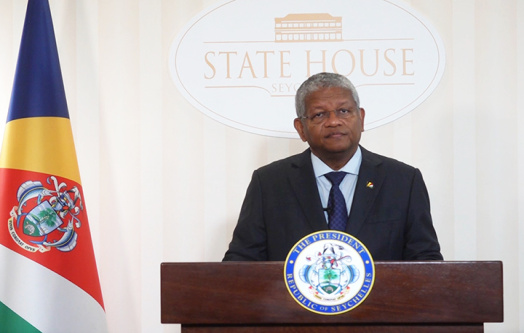
Excellencies,
Distinguished guests,
Ladies and gentlemen,
Greeting to you all.
It is my pleasure to address you on this auspicious occasion, in the celebration of our African aquatic heritage.
Evidently, Africa’s aquatic resources are worthy of recognition and celebration - for let us not forget that Africa boasts of some 26,000 nautical miles of coastline and 13 million km2 of Exclusive Economic Zones.
Remarkably this year, the African Day of Seas and Oceans is being commemorated through a Blue Economy Awareness Week!
Dedicating a whole week to blue economy-related discussions is indeed significant, and indicative of the increased significance that we, African citizens, progressively assign to the sustainable development of our aquatic resources.
To be reminded is that Africa’s lakes, seas, rivers and oceans have been acknowledged by the African Union as the centrepiece of Africa’s sustainable development pathway.
Excellencies, ladies and gentlemen, in the last decade, there has been a rising global movement that is urging humanity to review and rethink the manner in which it operates within its natural environment.
Our adoption and implementation of Africa’s Blue Economy Continental Strategy, is indicative that Africa is responding to this global call!
This is understandable in view of the many threats that plague our seas and oceans, most of which emanate from global human actions that instigate climate change, and threaten life on earth as we know it.
At the end of the day, no matter how big or small a part we have played in the global environmental decline, we have all heard and felt the warnings of how humankind’s reckless exploits are gradually pulling us into an age of scarcity and deprivation.
Although it is indeed important for us to be mindful of all these threats, in order for us to move forward and try to take control of our own destiny, it is equally significant for us to focus on the opportunities that have risen out of all these threats.
For one, these environmental pressures have forced us to look at our aquatic resources through a broader lens. It has taken us out of our comfort zones and taught us to: look beyond our limited, traditional tourism and fisheries practices, and to explore new possibilities with more promising socio-economic and environmental returns. Consequently, today we are not only becoming more business-minded in terms of efficiency, but also more environmentally cautious and therefore more sustainable. Case in point, we are learning on how to add value to a single resource, so as to earn more from less. A plain example is Seychelles’ efforts to fish less but to increase the value of one fish, for instance through our boosting of the fish processing industry. Moreover, there is also our effort to explore the development of new sectors such as circular economy and marine biotechnology to diversify our revenue stream, all the while reducing pressure off our traditional economic sectors, the likes of fisheries and tourism.
Ladies and gentlemen, one lesson learnt from the Seychelles’ blue economy experience is that we need to put our people at the centre of development. We need to ensure that whatever we are doing is relatable to the general population and that they are thoroughly engaged. We have to be mindful that community or local buy-in is one of the main decisive factors in the extent that any project or initiative is successfully implemented. This is a message that we need to echo far and wide across the continent!
This is why Seychelles together with AUC are advocating for increased blue economy sensitization and improved communication strategies - it is only when people gain understanding, that they can identify with an idea and eventually commit to making it work.
Moreover, the need for youth integration across our endeavours cannot be overly stressed. Youths are not only a source of innovation and ingenuity, but they also add the element of continuity - or the sustainability component to our plans and objectives. They are after all our succession plan and should be nurtured, empowered and educated accordingly.
On this note, I am pleased to share that Seychelles has piloted an initiative to integrate ocean science in the national school curriculum. This is something that we would encourage other African countries to emulate in future.
Last but not least, I would also like to highlight the need to foster more collaboration and partnerships across African nations - for there is strength in numbers. Hence, we have to work together to find our true north and to illuminate the pathway to a desirable future for all of Africa’s children.
I thank you, and wish you an enriching experience throughout the Blue Economy Awareness week!